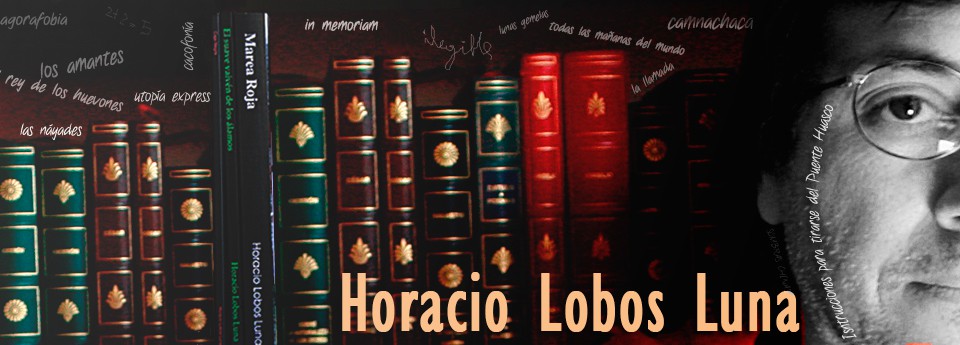When we opened our eyes, we had slept for five years and we were already in Mars. That was what they told us, at least, as we watched the vast plains of arid and copper soil fading away into the horizon, behind the ship window. A mild smokescreen and steam, raising from some point of the engines recently switched off, blurred from time to time that first vision of a landscape such familiar to me. Not because I had been there before (nobody had been never till then), but because it reminded me the irritating desert where I came from, over there, in some place into the remote Earth, moistened by the camanchaca in cold dawns of my childhood winters. When something like the camanchaca still existed, of course. Would be left some arid trace of a valley crossing through those rocky hills too? Who knows. Everything was new in Mars now. That was what they told us, at least.
Had not even time to wonder about that desolate stony resemblance. Soon it was only take up this, take down that, be driven to lengthy metal corridors and endless aisles and racks, eternally reduplicated. And a suffocated rumor trying to leak through the unbroken purr of the tigerish machinery, immeasurably indeterminate upon our heads. It was the sandstorms sweeping the surface at times, tossing against the structure of the complex, they said. They were wellcomed us to our new home: the posesion of a vast world to know and explore. It was the last thing they said, before going back to the sidereal night, leaving us after their goodbyes and the promise of an impending return.
Since then it was wandering through cold light ducts and rooms downsized against metal vaults. Taking and getting samples pulled from the dry surface, in a slow progress over the plains, crowned by unreachable hills framed into observation windows, waving to us in the distance, as they did in our first descent from the ship. There they are still today, another many years away from that day, without no intention of moving back in the coming years, apparently, nor in the next generations. The attempts to go further those unreachable hilly shapes have remained as useless testing to break through the self-imposed barrier: fear to dead because of the heat and the atmospheric pressure. The equipment is still frail facing this planetary portent called Mars. That was what they told us, at least. And every time we get a crackling contact with the Earth, we are reminded about the danger involved by that frailness. Not staying out over two hours. Avoid particularly the sandstorms. The satellite orbiting the circle of the planet sends us, from time to time, the alert about the climate changes upon our endless martian desert, screened towards the satellites of the Earth. But the years have become unending, and the sight of those hills, always there, as waiting, seems call for us. We go out, bringing new samples and, every now and then, some news: someone dared to go beyond the last mark, defying the limit of two hours, without much problem. Then the warning from the Earth is repeated again: not taking unnecessary risks and wait for a new landing party with more advanced equipment. That is what they say to us, at least.
Waiting. Watching from the hatches and wait. For years and years. Since then. Since now. As imposible as ignoring the rumors spreading and running through the corridors in this large metal hulk. One can hear them increasing in nights, beneath the mechanic purr of the complex. Whispering into the ears at the glancing through the observation windows, there, on that rocky ridge barely standing out, hundreds kilometers away, on clear and bright days: a shape, a figure too familiar to ignore it. The relief of mountains and textures I already know, watched through the vail of a camanchaca long time ago, or distant ravines that others say they rekindle from here. But no. We are in Mars: a completely new world, light years from our homeland. Impossible. That was what they told us, at least.
And so we pass it on to our children. And the children of our children. Waiting that some day, in a moment of a monumental parricide, someone manage to reach that distant hills and can be said that what they told us, was truly what they told us.
THE RUMOR OF THE HILLS
25 Saturday Jul 2015
Posted in Literature, Sci-fi, Short stories

